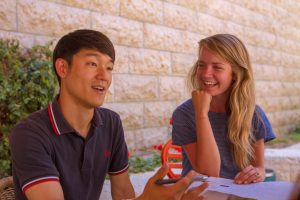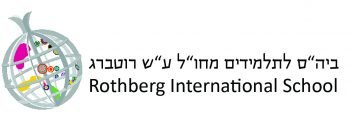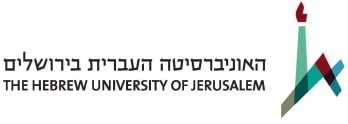You can choose to participate in an excavation for the field experience only, or you can decide to also earn credit from HebrewU during your participation. The process differs according to your choice.
- Earn academic credit for any of our archaeological field schools.
- Choose from archaeological digs from a variety of different periods in Israel’s history.
- Experience the land of the Bible through travel and tours.
- Take part in lectures and seminars provided by leading archaeologists from Hebrew University.
Archaeological Field Schools
Tel Hazor is the largest Biblical-era dig site in Israel. It is located in the Hula Valley, about twenty miles north of the Sea of Galilee and Tiberias, near Rosh Pina. Hazor is mentioned several times in the Bible and in ancient Near East sources, indicating its important position in both the Israelite (Iron Age) and the Canaanite (Bronze Age) periods.
Tel Hazor is the largest Biblical-era dig site in Israel. It is located in the Hula Valley, about twenty miles north of the Sea of Galilee and Tiberias, near Rosh Pina. Hazor is mentioned several times in the Bible and in ancient Near East sources, indicating its important position in both the Israelite (Iron Age) and the Canaanite (Bronze Age) periods.
The Tiberias excavations are located in the heart of the ancient city of Tiberias. Tiberias was founded in 19 CE by King Herod Antipas, the son of Herod the Great, as the new capital of his kingdom.
Archaeological field school at the iconic site of Lachish, a major Canaanite city-state and the second most important city in the Kingdom of Judah. The excavation will focus on Level V, dated to ca. 930-860 BC, one of the most enigmatic era in the history of the Kingdom of Judah. The excavations will also focus on the fortifications, the city wall and houses abutting the wall from inside the city.
Tel Abel Beth Maacah is a large, imposing site located in the beautiful Upper Galilee, near the modern border between Israel, Lebanon and Syria, reflecting the ancient border between the Israelites, Phoenicians and. Excavations at the site have produced rich remains from the Middle Bronze to the Iron Age, the latter showing the city to have played a major role in events and processes mentioned in the Bible, in the region and beyond.
Participation Only
You’ll apply directly to the specific archaeological field school you’d like to join. Please select your field school of interest from the list above for more information.
Participation & Academic Credit
In order to earn academic credit for your participation in the archaeological field school, you’ll complete a three-step process:
- Apply directly to the specific archaeological field school you’d like to join. Please select your field school of interest from the list above for more information.
- Fulfill the academic requirements of the excavation as determined by the director of your archaeological field school.
- Once you have finished the field school and submitted a research paper, you need to submit an application to HebrewU’s Rothberg International School (RIS).
Click below to view the 2025 Summer Courses Schedule:
Hebrew University Quick Facts

We offer courses and programs in a variety of fields, with a focus on social and political sciences, Israel and the Middle East, languages, religion, fine and performing arts, business and legal studies, and STEM.
The Real Jerusalem
Live on-campus with international and Israeli students – including a staff of Israeli students who help you navigate life in Jerusalem. This vibrant city will be your second classroom, full of trips and tours.
Apply Now
Apply online to begin your adventure in Jerusalem at the highest-ranked university in Israel.
Visit us! @hebrew.uni.intl
Contact Us
Rothberg International School
The Hebrew University of Jerusalem
Boyar Building, Mount Scopus
9190501 Jerusalem, ISRAEL
Privacy Notice – International Students

